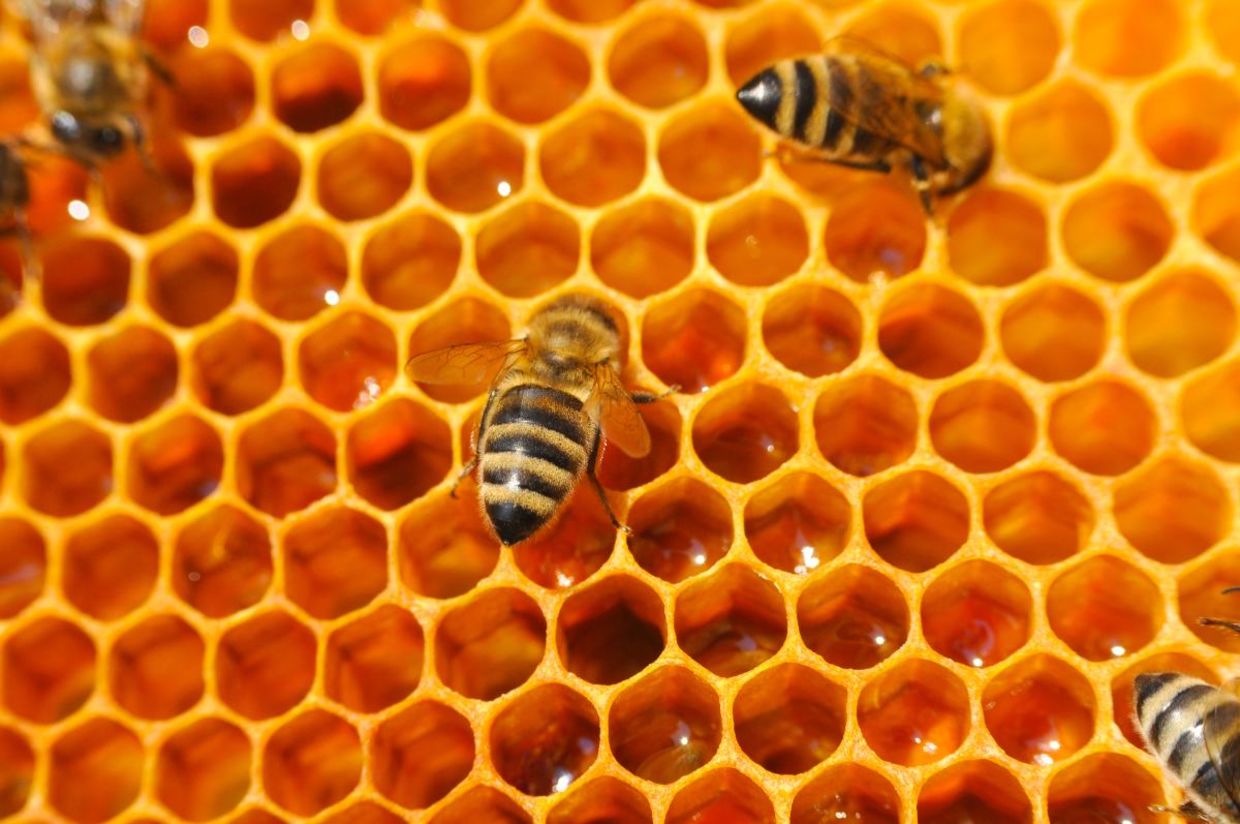
(Ivan Marjanovic / Shutterstock.com)
Honeybees are an important part of food production and pollinate many of the foods people eat. But bee populations have been in a decline due to many reasons, one of them being nutritional deficiencies due to a loss of pollen.
Honeybees feed on pollen and nectar from flowers that contain all the nutrients including sterols) that they need, reported the BBC. The bees make honey from the pollen and that becomes the hive's source of food through the winter. But if there is not enough honey because too much was removed or not enough produced, beekeepers give the bees supplemental food, but the food does not have all the nutrients the bees need.
That’s why researchers at the University of Oxford in collaboration with Royal Botanic Gardens Kew, University of Greenwich, and the Technical University of Denmark, developed a “superfood” that can help save honeybees.
“This technological breakthrough provides all the nutrients bees need to survive, meaning we can continue to feed them even when there's not enough pollen,” senior author Professor Geraldine Wright at the University of Oxford told BBC News.
About the Study
The research team was successful at engineering the yeast Yarrowia lipolytica to produce a precise mixture of six key sterols that bees need, according to a news release from the University of Oxford. The bee food was incorporated into the diets of bee colonies during a three-month feeding trial.
By the end of the trial, the colonies that were fed the engineered food had reared up to 15 times more larvae compared to colonies that were fed control diets.
Lead author Dr Elynor Moore, who was formerly from the Department of Biology at the University of Oxford said in the news release: “For bees, the difference between the sterol-enriched diet and conventional bee feeds would be comparable to the difference for humans between eating balanced, nutritionally complete meals and eating meals missing essential nutrients like essential fatty acids.
“Using precision fermentation, we are now able to provide bees with a tailor-made feed that is nutritionally complete at the molecular level.” The results of the study were just published in the journal Nature.
What’s Next
While the results were very promising, larger scale field trials will have to be conducted to see if there is a long-term impact on the health of the bee colonies that use the new supplement. The bee superfood could be available in two years.
What is even more exciting is that the new technology could be used to develop supplements for other pollinators or insects. This could make agriculture more sustainable as climate change and habitat loss contribute to the loss of pollinators. Now even if extreme heat kills flowers earlier in the season, bee colonies can still survive.
YOU MIGHT ALSO LIKE:
New Study Shows Bees Learn From One Another
The ‘Bee Man’ is Helping Native Bees One Hotel at a Time
Plant Diversity in Urban Gardens Increases Insect Species







